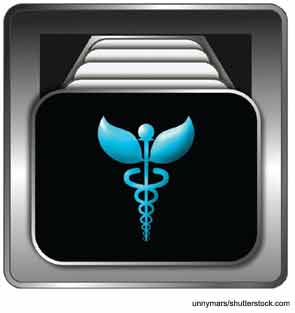A survey from 2010 reports that 21% of physicians in the United States are working part-time, compared with 13% in 2005


A survey from 2010 reports that 21% of physicians in the United States are working part-time, compared with 13% in 2005

A new study suggests adopting EHRs can lower the risk of medical malpractice, but not everyone agrees that EHRs are good medicine

The art of purchasing a piece of medical equipment requires the perfect combination of medical, financial, business and legal expertise.

Key documentation you should have in place for each of your employees.

The reality for most businesses, including medical practices, is that the business owner or another employee is tasked with the uncomfortable role of terminator. If the termination is handled improperly, the former employee may lodge a complaint against you. In fact, wrongful termination charges filed with the United States Equal Employment Opportunity Commission rose last year for the seventh consecutive year.

Leaving a medical practice is never an easy decision. As you plan your exit strategy, be aware of these issues and address them proactively with your employer.

As the physicians of the baby boomer generation approach their golden years, many have achieved career and financial success and are looking for an arrangement that will allow them to ease into retirement. While you may not be ready to hang up your white coat permanently, you may be interested in working fewer hours and taking less call. Retirement requires more than simply removing your name from the office door, however. If you are a physician nearing retirement, it is important that you plan, discuss and make contractual agreements that will allow you to accomplish your goals and changing needs.

In my January 2011 column (“A Seller’s Market: How to prepare your practice for sale to a hospital”), I described the growing trend of physicians selling their practices to hospitals and large health systems and then working for the hospital or health system. This trend is expected to continue in full force through 2012. As I noted in my January article, the physician’s post-sale arrangement is the driver for the growth of the physician’s practice within the hospital or health system.

As tenants of medical office spaces, physicians often create special leasing issues. Medical tenants use hazardous materials, generate biomedical waste, demand confidentiality of patient records and require compliance with occupational safety standards—all unique aspects of the medical profession. Yet, often, physicians will sign “form” medical office lease agreements provided by the landlord without the benefit of legal counsel. Typically, the landlord provides a standard fill-in-the-blank lease form with the tenant’s name and the general business terms (including the term of lease, rental rate and commencement date). Tenants may gloss over the legal boilerplate provisions included in the lease agreement, assuming that these terms are standard to all leases and are not subject to negotiation.